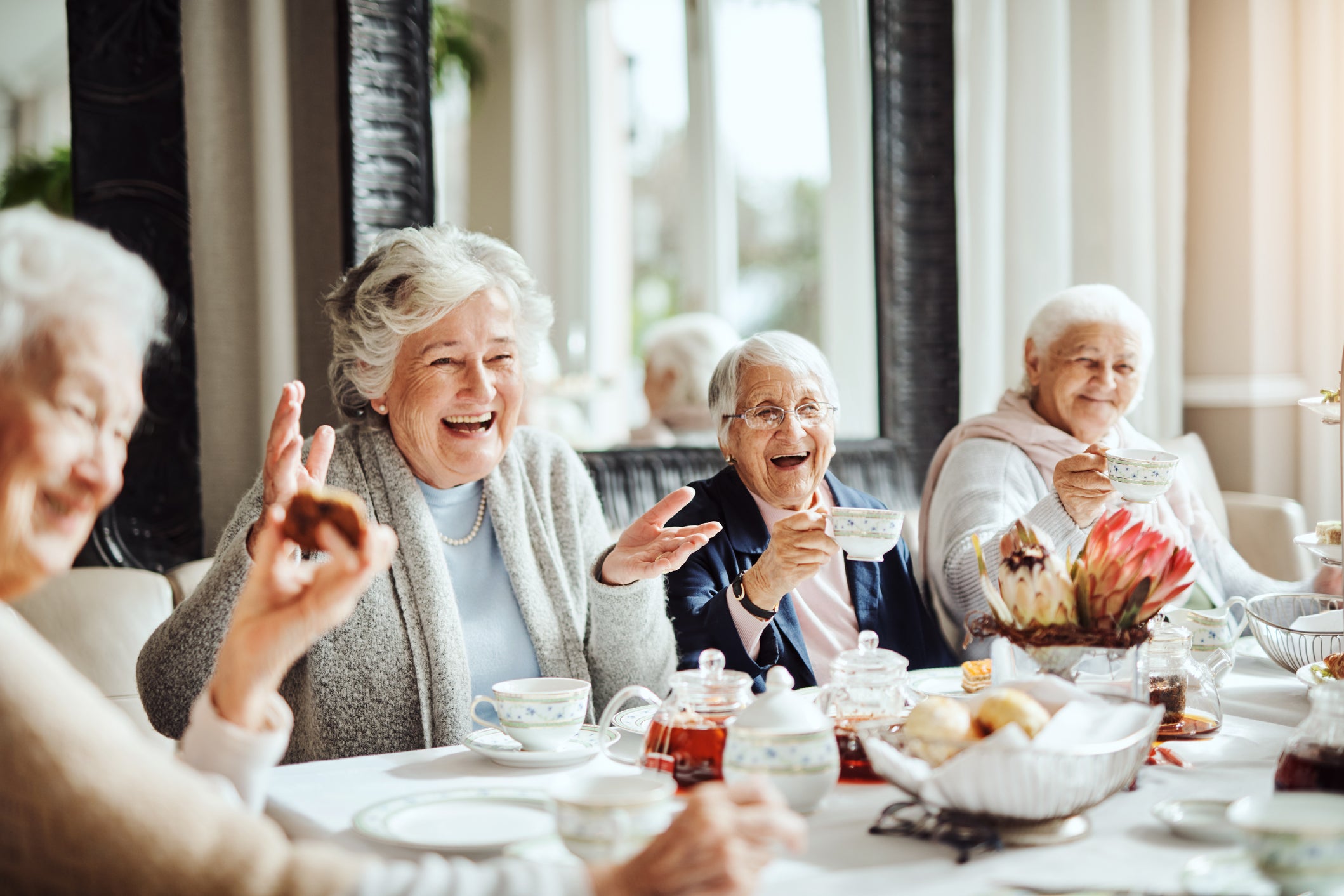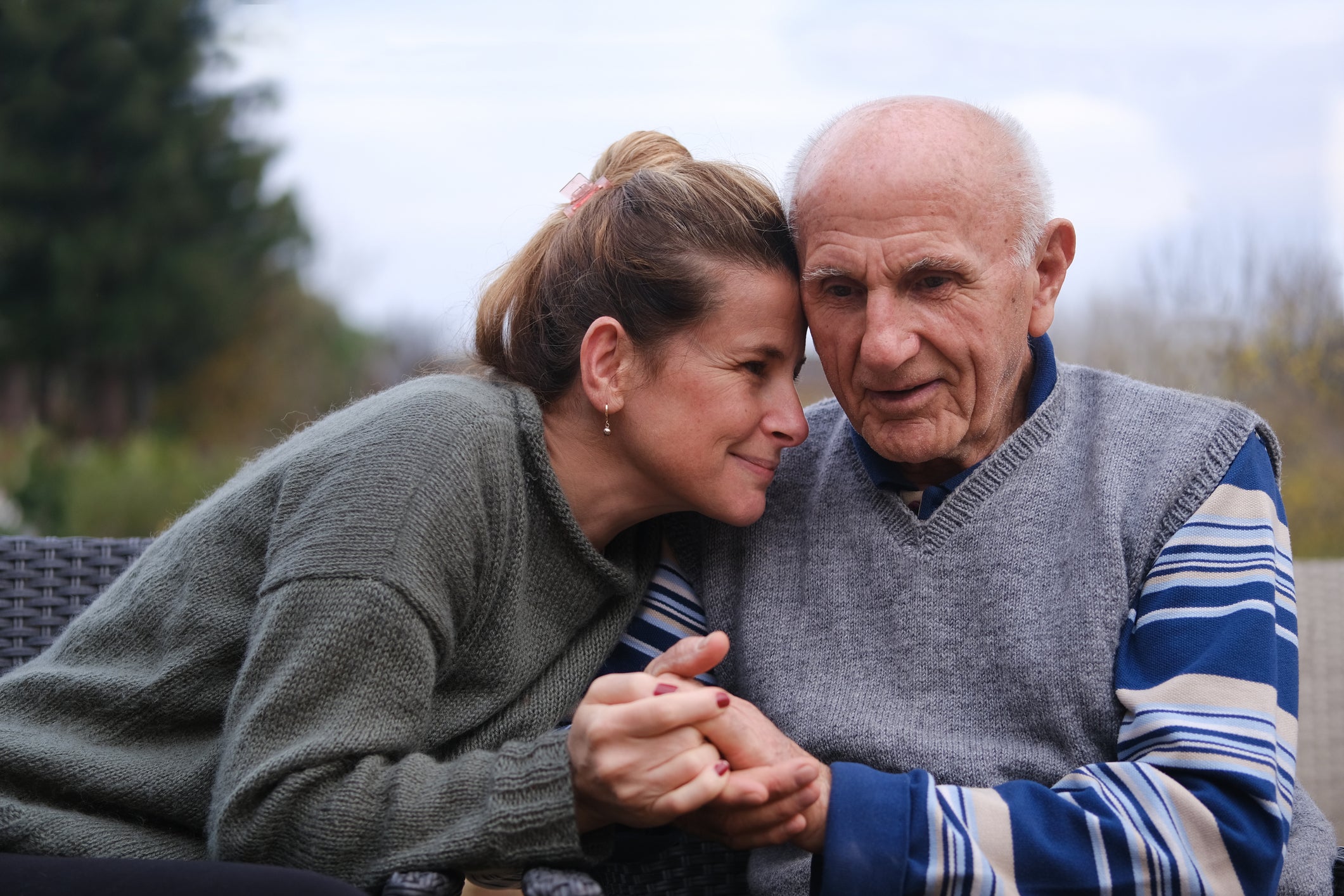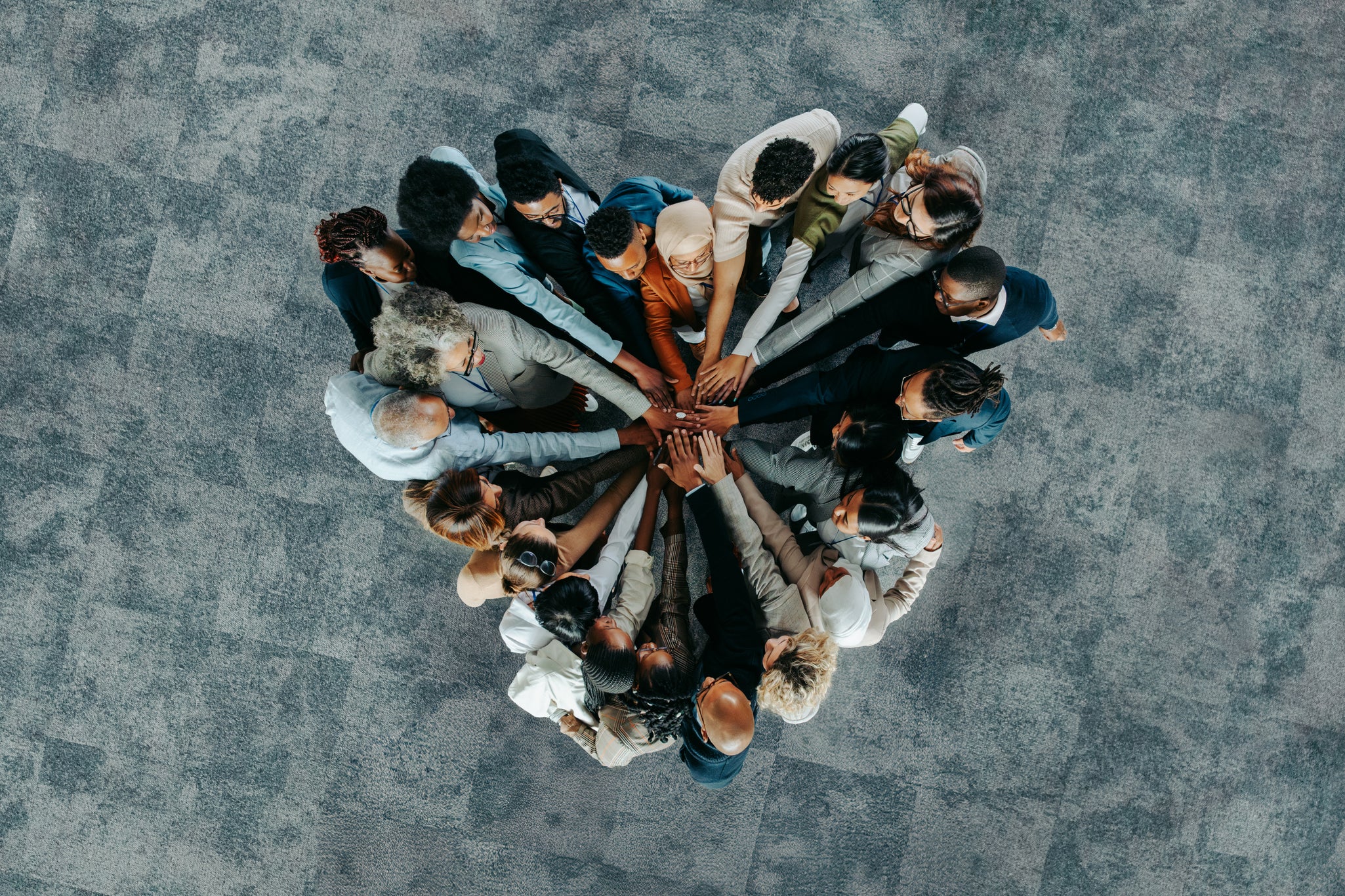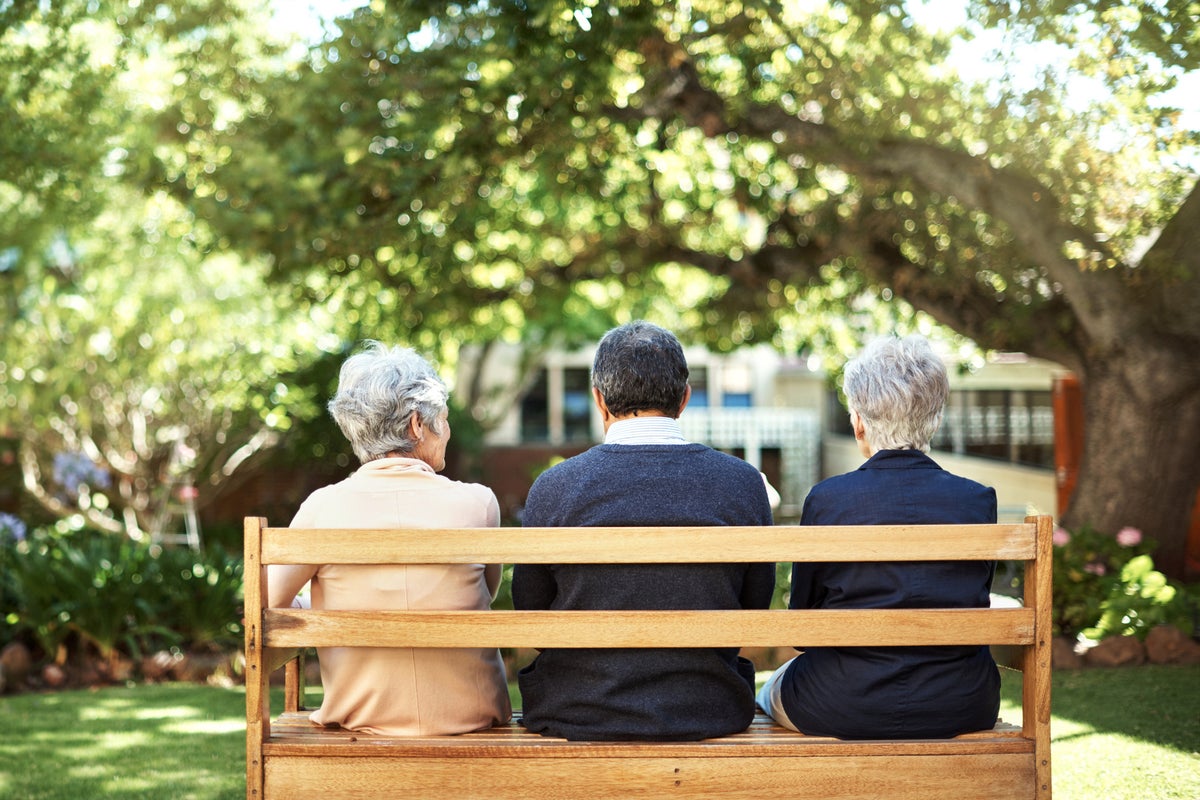I live by myself – I don’t have any family, it’s only me – and I have nightmares aboutdying at home suddenly and no one discovering meFor four years! That terrifies me…” Several other attendees at tonight’s gathering solemnly nod in agreement with these words – the woman speaking is not the only one experiencing this deep-seated fear.
Her remark comes after an energetic conversation about what occurs if someone dies in the street—specifically, whether the police can identify the person if no relatives are available. “I think it would be so simple if everyone had their NHS number tattooed on us,” another woman says, and the group chuckles at the idea. Another person suggests a more practical solution: she wears an “SOS” locket bracelet with her name, national insurance number, and contact information for her trusted solicitor, who hasaccess to her funeral arrangements and last will.
This interaction is common in aAgeing Without Children(Awoc) meeting – a secure environment where individuals can express deep concerns alongside a healthy amount of humor and genuine guidance. Established in 2014, the charity has three primary objectives: to establish peer-supported groups for people approaching old age without children to care for them or speak on their behalf; to provide useful information for these groups; and to push for government action, at both local and national levels, to consider this expanding population in health and social care planning.
Tolong support kita ya,
Cukup klik ini aja: https://indonesiacrowd.com/support-bonus/
It’s a wide-ranging community. The group consists of both those who arechildfree by choiceIndividuals who are unable to have children due to infertility or external factors. Also included are those who have never had children, those who have lost their children, and those with adult children who have disabilities like Down syndrome (and thus may not be able to support aging parents), as well as those who are separated from their children. “It’s an inclusive group,” says Jenny Collieson, national co-chair of Awoc. “We also have many LGBTQ+ individuals because although there have been significant changes for younger people regarding same-sex marriage and parenthood, for those over 65, they often couldn’t have children—or have been rejected by their former families.”
Tonight’s meeting of the East Kent branch of Awoc, held via Zoom, focuses on death. Chair Penny Shepherd has developed a detailed presentation covering identification, how authorities locate your final will, and who to choose as the executor of your estate. There are 10 participants, all women – a typical characteristic in many existing childfree and childless community spaces, possibly reflecting the idea that anything related to family is still oddly considered a “women’s issue.” The attendees, in their sixties and older, are also very involved, asking thoughtful questions and exchanging advice and personal stories.
Individuals attend the meetings to gain knowledge, but they remain for the sense of connection, Shepherd has noted. “What people consistently mention is that, indeed, the information shared at the meetings is helpful,” she explains, “but, even more significantly, they express: ‘I believed I was the only one in this situation worldwide, and now I realize I’m not. There are many others like me.'”
Certainly, the number of individuals in the UK without children is consistently rising. Thepercentage of women who have not given birthIn England and Wales, the percentage of individuals in their seventies has risen from 15% to 23% among those in their fifties. By 2032, it is expected that the number of single, childless older people will increase by 80%.

The United Kingdom is one of many nations that possess aageing population, the outcome of extended lifespan along with adeclining birthrateThis demographic change is already having, and will continue to have, a major effect on elderly social care. At present, family members offer 92 percent of all informal (unpaid) care in the UK. This can range from helping a parent with a weekly grocery shopping trip to driving them to medical appointments and making health decisions for them if they become unable to do so. “But what happens when you grow older and don’t have any family support?” asks Collieson. “Even though our population is changing, this remains deeply embedded in our health and social care system – the assumption that everyone has access to family caregivers.”
In reality, individuals without children are significantly more inclined to offer informal care for theirownOlder parents often find themselves in a position where they have more difficulty than those who have had children. This frequently leads to what Collieson refers to as a “lightbulb moment”: “Someone in their fifties or sixties suddenly realizes, while trying to obtain assistance for their 90-year-old father, that it’s quite difficult. They begin to question who will be there to speak up for them if they don’t have family.”
Within the Awoc community, there are shared anxieties regarding advocacy, especially if an individual becomes involved in.dementiaWithout the presence of a trusted individual to make choices that align with their best interests. Even for those who have wide circles of friends, these connections often fall within the same age group. “You might have numerous friends in your seventies and eighties, but they tend to pass away—and people your age may also become less capable themselves,” Collieson explains.
It remains deeply embedded in our health and social care system that all individuals have access to family caregivers.
Although this shortage of informal care is becoming an increasingly urgent issue, there is still very little action being taken at the local or national level to include it in policy decisions. The “birthrate crisis” has risen to the top of the political agenda in countries around the world, with the UK’s minister for women and equalities,Bridget Phillipson, actively promoting the idea of having more childrenand presenting the lure of improved parental leave and family-oriented policies. Yet, very little discussion is taking place regarding the implications of the baby shortage on already strained care systems in the future.
This is, in part, due to the fact that choosing not to have children is still strongly looked down upon in societies that encourage having children, according to Zoë Noble – especially for women. Noble establishedWe Are ChildfreeA platform that supports and connects individuals without biological children, launched in 2017. “I realized how impactful it is to have communities, to see that you’re not alone,” she states. “We aim for this to be a space where people can connect with others around the globe. Regardless of where you live, you should be able to find someone who can serve as your support network.”
However, the mere presence of this movement, which currently has 90,000 followers on social media platforms and a private group of 400 members, has sparked debate. “We aren’t sure if we’ll be able to stay on social media forever, as our posts get removed and the content we share is taken down,” says Noble. “Anything related to”reproductive rights can often be specifically focused onby [Facebook, Instagram and WhatsApp owner] Meta.” And reproductive rights play a crucial role in the childfree discussion – “as we can’t choose to be childfree without access to birth control and control over our own bodies,” she notes. “There’s a growing sense that we are being singled out more and more.”

Sarah Carpenter, an artist and researcher, leads a community interest company based in FolkestoneFourth Wall, thinks we aren’t discussing ways to improve care for those without children in their later years because we aren’t having discussions about aging itself. “It’s because we don’t talk about death, so we don’t plan for growing old,” she explains. “It’s still very much a taboo – the concept of being vulnerable and requiring assistance and care. It’s viewed as a sign of weakness.” Even though it’s clear that everyone will age and eventually pass away, somehow no onereallybelieves it will occur to them directly.
Currently 42, Carpenter underwent a hysterectomy two years ago following years of severe endometriosis. This experience prompted her to consider the challenges of aging without family support at a relatively young age. She and another friend who has chosen not to have children began joking about forming a commune together—but what began as a lighthearted idea has evolved into something more serious.
I’ve begun engaging in deeper discussions with individuals about the potential of communal living,” she states. “I’m currently on the brink, but the initial step is to have these talks with people who share comparable ethics and values and are interested in collaborating—considering the various skills each person can bring to the table.
There are numerous challenges – modern life in consumer-driven societies is structured around extreme individualism, and communal living is naturally “complicated” when it comes to decision-making through groups, according to Carpenter – but this doesn’t mean it’s impossible. In fact, these kinds of setups are already taking place, one of the most well-known beingNew Ground CohousingThis group of 26 trailblazing women, all over the age of 50, established their own community in a newly constructed apartment building in north London in 2017. “As an alternative to living alone, we have friendly, supportive neighbors,” states their website.
I’ve begun engaging in more detailed discussions with others regarding the potential appearance of communal living.
The initiative has garnered significant attention and has been flooded with requests to participate since its launch (it is not currently taking new applications). The group strives to offer as much assistance as possible to those interested in establishing comparable programs, stating: “The senior cohousing community could enhance the lives of many individuals and alleviate strains on health and care services, if local authorities, planners, policymakers, and housing developers work to eliminate the numerous barriers that society imposes.”
Such approaches are praised by When I Get Old (Wigo), an organization advocating for significant changes in a care system it claims is no longer effective. Although care homes are often extremely costly—sometimes exceeding £1,500 per week—they can still strip residents of their independence and respect due to alack of financial resources and skilled personnel, there are “glorious exceptions” to this model, according to Wigo. These include co-housing setups, community micro-providers that offer care to a limited number of residents in their local area, and home-sharing programs where elderly individuals with an extra room are paired with younger people who provide assistance and company in return for housing. However, these alternatives remain, at this time, well outside the norm.
In the interim, minor adjustments can lead to significant impacts. Awoc is pushing for the removal of the term “next of kin” from hospital documents—the default (and inaccurate) belief being that all individuals have relatives. It also supports the development of improved advocacy services for those who lack family members to represent and act for them. Furthermore, planning for later life—like the discussions held at the East Kent meeting—is another essential resource that everyone can take advantage of, covering aspects such as setting up power of attorney todownsizingBefore situations escalate to a critical stage. This is particularly relevant for individuals who cannot depend on their adult children to manage their matters.

Alongside Awoc and We Are Childfree, many groups have emerged to connect and support the growing number of individuals living outside conventional family setups. There are Facebook groups such asSolo Sisters(“to support and unite women who are childless and may or may not have other family members”) andChildfree Living UKforum (“We choose to be childless and we love it!”); online forumChildless Collective(targeted towards women and nonbinary individuals who are permanently childless against their will); and in-person gatherings held throughout the UKlisted on Meetup.
Gateway Women, an online group for women without children, was established in 2012 by Jody Day, the writer ofLiving an Unplanned Life: How to Discover Hope, Purpose, and a Rewarding Future Without Kids, has now developed into “Childless ElderwomenThe group’s regular webinars have addressed subjects like ‘Solo Elderhood: aging without children or partners’ and ‘Supporting caregivers – and questioning the ‘default caregiver’ idea.
It’s not that individuals without children are seeking “special treatment,” as Collieson states: “We’re simply pointing out, in a society that is often ageist, where older people frequently feel overlooked, those who age without family become even more invisible.”
Everyone simply desires to be recognized; as this group grows increasingly significant, it’s definitely time for the government and decision-makers to finally take notice.
The Independent is the world’s most independent-minded news brand, offering international news, opinions, and analysis for those who think for themselves. We have built a large, global audience of individuals who appreciate our reliable voice and dedication to driving positive change. Our goal, to bring about change, has never been more crucial than it is now.







